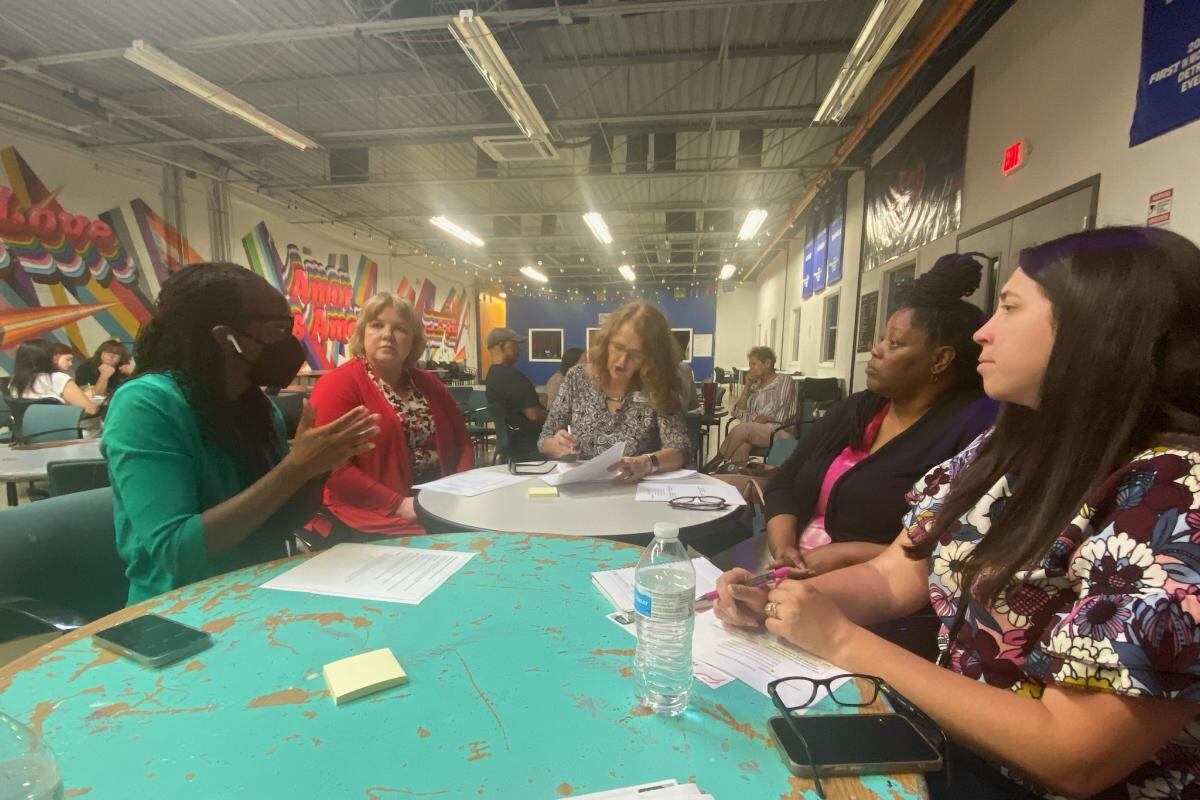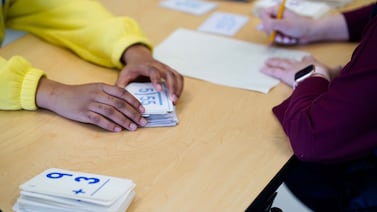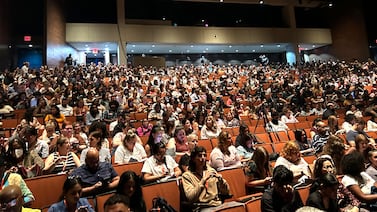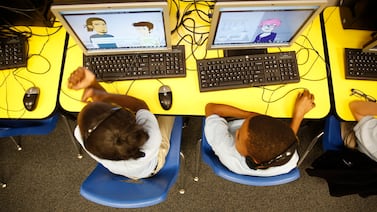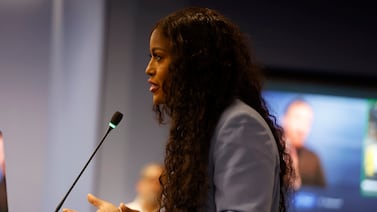Semira Watkins says her 14-year-old daughter, Zaamilah Watkins, who is going into the ninth grade at Crockett Midtown High School of Science and Medicine, dislikes reading and has trouble connecting with her English assignments.
“She shies away from it, because it’s something that doesn’t interest her,” the Detroit public schools parent said. “I know my baby girl has asked questions on different things, and she’s made to feel ‘less than.’ I don’t think they (the teachers) are as patient as they should be.”
The story was among those shared Monday during the first community meeting with the Detroit Literacy Equity Task Force. At least 20 educators, parents, and community members filled a room at the Detroit Hispanic Development Corp. in Corktown to talk about ways the Detroit Public Schools Community District can improve student literacy levels.
The meeting comes almost two months after the announcement that the district will receive $94.4 million from a settlement in a 2016 lawsuit that claimed the state denied Detroit schoolchildren access to literacy. The funds were included in the $21.5 billion K-12 school aid budget that the Democratic-controlled Legislature passed in June, with Gov. Gretchen Whitmer approving the budget last month.
The federal case settled in 2020 dates back to when the Detroit school district was under state oversight. The plaintiffs were seven Detroit public school students who alleged they were denied the opportunity to have a quality education because of poor building conditions, a shortage of textbooks and other learning materials, and poorly qualified teachers.
The lawsuit called out Michigan’s deployment of emergency managers to control the city’s public schools between 2009 and 2016. Those managers created conditions so awful, the plaintiffs alleged, that students were denied their constitutional right to a basic reading education.
Task force member Cassie Williams, who also is the executive director of K-12 literacy for DPSCD’s Office of English Language Arts and Literacy, gave an update Monday on the settlement funds, saying the money can now be used, but only for literacy-related programs. Those programs include multisensory training and certification for teachers; increasing the number of academic interventionists; and hiring certified teachers as full-time reading interventionists to work with struggling readers one-on-one and in small groups.
The goal of the task force is to provide community recommendations on how the funds should be used. The team must hold five other public meetings, including virtual meetings.
The task force was created out of the settlement, along with the Detroit Education Policy Committee. The group is charged with conducting annual evaluations of Detroit literacy and providing state-level policy recommendations to Whitmer. The task force will also provide recommendations to the DPSCD school board, but the board does not have to accept them.
“This is a really good start. Everybody is coming with ideas and good questions, but we want to just make sure we get as many people from across the city as possible,” Williams told BridgeDetroit.
DPSCD’s reading levels seeing growth
During the meeting, Williams provided an overview of DPSCD’s reading levels for the 2022-23 school year. Numbers slightly improved for the district’s end-of-year assessment results for grades K-8.
During the fall of 2022, only 5.4% of students were reading at grade level. Meanwhile, the share of students reading three levels or more below grade level was at 36%.
Numbers improved this spring: Students reading at grade level increased to 13.5%, while 24.7% of students were reading three levels below grade level.
The numbers are similar to the spring of 2022, when 12.9% of students were reading at grade level and 26.1% were reading three levels below grade level.
The district’s goal is for students to move up at least one grade level a school year, even if they aren’t reading at grade level, Williams said.
“We see some growth in specific grade levels, but it’s not enough,” she said.
Teams discuss possible solutions for DPSCD’s literacy problem
During the meeting, attendees broke into small groups to talk about ideas and recommendations for the literacy lawsuit funds.
The district’s literacy intervention curriculum leader, Gabrielle Johnson, led one discussion with Mary Beth Lohman, a co-director of girls programming for the Mercy Education Project, as well as Watkins and two other community members. They talked about solutions such as having a better ratio between students and teachers and more hands-on activities.
Lohman said a majority of the students who participate in programs at her workplace come from families that don’t make reading a priority. A rewards system, Lohman said, can help kids become more engaged with reading.
“We try to offer a monthly book club where they can bring in their book reports and earn a pizza party or an ice cream party,” she said. “We try to add as much fun as we can to it, but it’s difficult.”
Jackie Thomason, the district director for state Sen. Mary Cavanaugh, D-Redford Township, said allowing students to pick the books they want to read could be another solution.
“I know back when I was in school, something that helped a lot was getting to choose the genre of book,” she said. “Then you’re more engaged.”
Later, Johnson brought up having a support system with parents when kids are outside of school.
“We also talked a lot about community engagement and parent support, maybe a parent academy for supporting students at home with reading,” she said.
As for Watkins, she will continue to encourage Zaamilah to read in hopes that she improves and develops confidence in her abilities.
“I would love for her to improve and develop that confidence whenever she sits down and gets a book,” she said.
Micah Walker is a reporter for BridgeDetroit, where she covers arts, culture, and education. Contact Micah at mwalker@bridgedetroit.com.

